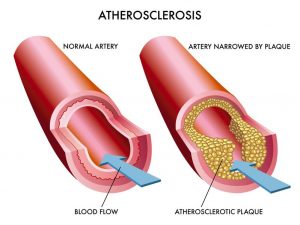
Blood pressure is a measurement of the pressure that is within the arteries of our body. It varies throughout the day, usually lowest at night and then rising just before we wake. Blood pressure elevates normally with physical activity and falls when we are at rest.
Blood pressure is measured by a device known as a sphygmomanometer. This device has a cuff which is wrapped around our arm and then inflated to known pressures and then released.
When your blood pressure has been measured you will receive 2 readings. The first is the systolic or peak pressure, generated by the pumping of the heart, and the second is the diastolic reading which reflects the pressure in our circulation between heart beats.
What should my blood pressure readings be?
Blood pressure readings at home should be 120/80 or less. It is generally best that pressures be kept as low as possible without symptoms of low blood pressure.
High blood pressure is defined as a reading in your doctor’s clinic greater than 140mmHg for the systolic and/or 90mmHg for the diastolic.
What does it mean if I have high blood pressure?
Blood pressure is elevated by many factors including genetic risk, high salt diet, obesity, inactivity, excessive alcohol consumption and sometimes reversible factors such as narrowed kidney arteries or other kidney disease, problems with thyroid gland, sleep problems, rare tumours and some drugs.
High blood pressure (hypertension), if untreated can result in major complications in the kidneys, heart and the brain. It is one of the risk factors for the development of atherosclerosis which can affect all arteries in the body. Atherosclerosis is a build-up of plaque within the wall of the blood vessel (think of the build-up of rust within a pipe).
The arteries throughout the body can be affected by atherosclerosis and the effects can range from heart attack, stroke, loss of blood flow to the limbs of other vital organs.
The heart can be damaged by high blood pressure. The muscle of the heart can thicken and eventually lose its pumping ability which can lead to the onset of heart failure. A second consequence of a thickened heart muscle can be the onset of an irregular heartbeat called atrial fibrillation. This heart rhythm abnormality is one of the most common causes of stroke in our community.
Inactivity is one of the factors which can elevate blood pressure. Accordingly we should all aim to exercise on a regular basis. Incidental as well as structured exercise is beneficial
Know your numbers
It’s important you know your blood pressure as much as you know your cholesterol, blood sugar, heart rate and body weight. If you have high blood pressure, it would be a great idea to invest in a home blood pressure monitoring device and make recordings of pressure as advised by your general practitioner. Many pharmacists also provide a facility for blood pressure measurement.
Prevention
Prevention is the key to blood pressure control. The key prevention measures include avoidance of foods high in salt, maintaining ideal body weight, exercising on a daily basis and limiting the intake of alcohol. The recommended alcohol intake is 1-2 standard drinks per day with at least 3 alcohol free days a week.
For more information about exercise guidelines including a gentle walking programme to get you started click here.
To read more about risk factors for heart disease click here.
Copy provided by Associate Professor Gregory Nelson MBBS, FRACP, FCSANZ – Senior Staff Cardiologist


